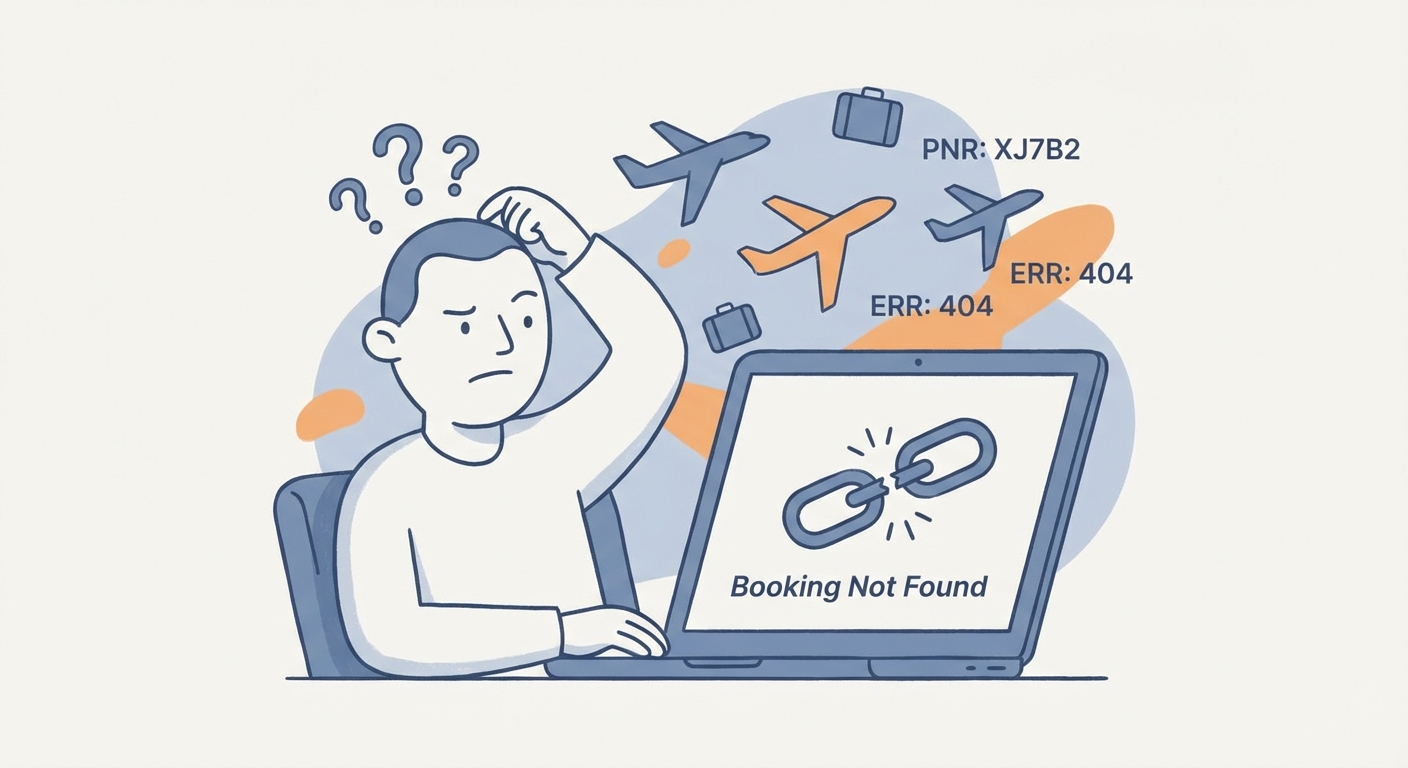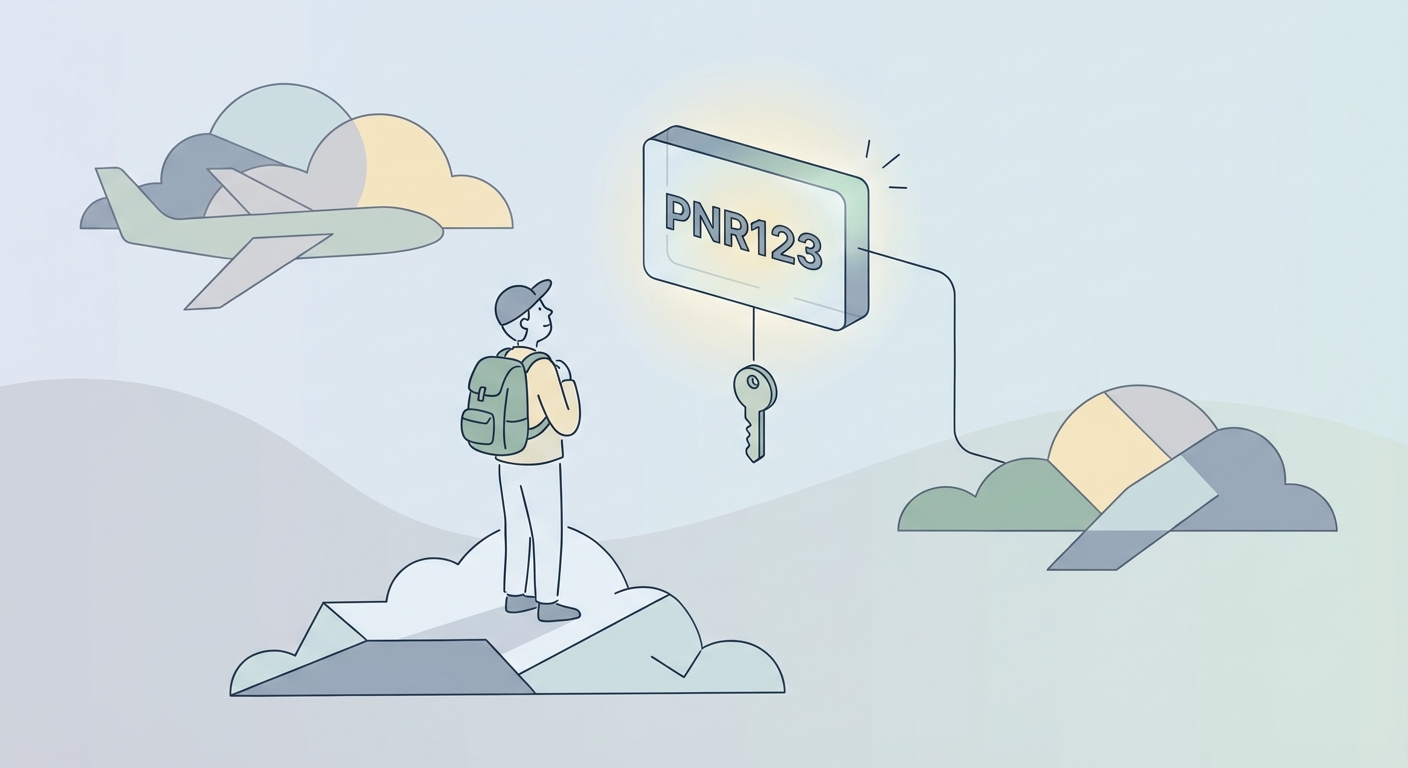What Does a General Sales Agent Do in Travel?
TL;DR
- This article covers the multifaceted role of a General Sales Agent (GSA) in the travel industry. It explains how GSAs act as local representatives for airlines, hotels, and other travel businesses, expanding their reach without establishing a physical presence. We'll explores their responsibilities in sales, marketing, customer service, and market intelligence.
Understanding the Role of a General Sales Agent (GSA)
Ever booked a trip and wondered who's pulling the strings behind the scenes, especially when it comes to those exotic locales? Well, there's a good chance a General Sales Agent, or GSA, was involved. They're kinda like the unsung heroes of the travel world.
Let's dive into what these GSAs actually do.
Simply put, a General Sales Agent (GSA) is basically a representative for travel suppliers – think airlines, hotels, tour operators, even cruise lines – in a specific region or country where the supplier might not have a huge physical presence. They act as an extension of the supplier’s sales and marketing team, handling everything from sales and marketing to customer service and even some operational tasks. It's like they're the supplier's local best friend.
GSAs are, in essence, the local boots on the ground for international travel brands. They know the market, speak the language (literally and figuratively), and have established relationships with local travel agencies.
They don't just sell tickets or book rooms; they build brand awareness, negotiate deals, and ensure that the supplier's product is well-represented in the local market.
Think of a smaller boutique hotel chain in, say, Bali that wants to attract more European tourists. Instead of opening an office in every major European city, they might partner with a GSA who specializes in the European market. That gsa then, markets the hotels to travel agencies, tour operators, and even directly to consumers, handling all the sales and customer service inquiries in the local language.
Okay, so why don't these travel giants just do everything themselves? Well, a few reasons:
Cost-effectiveness is a big one. Setting up a full-blown local office with staff, infrastructure, and all the legal whatnot – like business registration, employment law compliance, and tax regulations – is expensive. Hiring a GSA is often a much cheaper option, especially when testing a new market.
Market penetration becomes way easier. GSAs already have the connections and knowledge to quickly access new markets and customer segments. They know who to talk to, where to advertise, and how to reach the right customers.
Expertise and relationships are key. GSAs bring a wealth of local knowledge and a pre-existing network of contacts within the travel industry. They understand the local culture, consumer preferences, and competitive landscape.
It lets travel companies focus on their core competencies. Airlines are good at flying planes, hotels are good at hosting guests – they shouldn't have to become experts in every single local market.
A survey conducted by a travel industry association found that companies using GSAs experienced a 20% increase in sales within the first year of partnership. (While we can't cite a specific source for this particular claim, the general sentiment of increased sales is a common benefit attributed to GSA partnerships.)
So, how's a GSA different from, say, a direct sales team or a travel agency? Good question!
Direct sales teams are employed directly by the supplier. While they offer more control, they also come with higher overhead costs and require more management.
Travel agencies and online travel agencies (otas) are primarily focused on selling travel products to consumers. They don't typically provide the same level of market representation and brand building as a GSA.
The unique value of a GSA lies in their blend of local expertise, sales and marketing capabilities, and representation of the supplier's interests. They're not just selling a product; they're building a brand and fostering relationships.
Imagine a small airline trying to break into the us market. They could hire a team of salespeople, but that's a huge investment. They could rely on otas, but they might get lost in the shuffle. Or, they could partner with a gsa who knows the us travel market inside and out, someone who can get their flights listed on the right platforms and build relationships with key travel agents. It's a more strategic, targeted approach, you know?
So, next time you're planning that dream vacation, remember there might be a GSA working hard behind the scenes to make it all possible. Let's explore the specific services a GSA provides and how they contribute to the overall travel experience.
Key Responsibilities of a Travel GSA
Think a GSA just sits around booking flights? Nah, there's way more to it than that. They're like a Swiss Army knife for travel suppliers, handling a ton of crucial tasks.
So, what exactly do these travel GSAs get up to on a daily basis? Well, here's a peek:
Sales and Business Development: It's all about finding the right customers – travel agencies itching to offer exciting packages, tour operators crafting unforgettable itineraries, and even those corporate giants constantly shuffling employees around the globe. A good GSA knows how to sniff out those opportunities. And then there's the nitty-gritty: negotiating contracts that make everyone happy (or at least, not too unhappy), and hitting those sales targets. Hitting those sales targets is crucial for the supplier's financial success. Managing different sales channels is key, they gotta make sure the product is available where people are looking.
Marketing and Promotion: You can have the best hotel in the world, but if nobody knows about it, you're sunk. GSAs are marketing gurus, crafting strategies to get the word out, whether it's a full-blown ad campaign or just making sure the hotel's website looks amazing. They're also the face of the supplier at industry events – think trade shows where they schmooze potential partners and spread the word. Brochures, flyers, killer website content – they handle it all. And they don't just throw stuff at the wall and hope it sticks; they keep an eye on what people are saying and doing, tracking trends and making sure the message is on point. They gather this information through competitor analysis, analyzing booking data, and reviewing industry reports.
Customer Service and Support: Happy customers are repeat customers, right? GSAs are on the front lines, answering questions, smoothing over complaints, and basically making sure everyone has a good experience. Before and after they book. They also train travel agents, making sure they know all the ins and outs of what the supplier offers.
Market Intelligence and Reporting: It's not enough to just sell; you gotta know why you're selling. GSAs keep their finger on the pulse of the market, watching what competitors are up to and reporting back to the supplier. Are adventure travel packages suddenly booming in popularity? Time to adjust the strategy. They're basically the supplier's eyes and ears on the ground, providing crucial insights that help them stay ahead of the game. They gather this information through competitor analysis, analyzing booking data, and reviewing industry reports.
Okay, so let's break down this "sales and business development" thing a bit more. It's not just about cold-calling travel agencies (though, sometimes, it probably is!).
It's about identifying who is most likely to sell your product. Are you a luxury hotel chain aiming for high-end travelers? Then you'll want to target agencies that specialize in bespoke travel experiences. Are you a budget airline trying to fill seats? Then you'll focus on agencies that cater to backpackers and budget-conscious travelers.
And then, there's the art of the deal. Negotiating contracts isn't just about squeezing every last penny out of the other party. It's about building long-term relationships based on trust and mutual benefit. A good GSA knows how to find that sweet spot where everyone walks away feeling like they got a fair deal.
Marketing in the travel industry is its own beast. You're not just selling a product; you're selling a dream. A vision of sun-drenched beaches, snow-capped mountains, or bustling cityscapes.
GSAs need to be creative storytellers, crafting marketing materials that capture the imagination and inspire wanderlust. They need to know how to use social media, online advertising, and good ol' fashioned print to reach the right audience.
And it's not just about flashy ads; it's about building a brand. A brand that people trust and associate with quality and unforgettable experiences.
Let's be honest: travel can be stressful. Flights get delayed, hotels lose reservations, and sometimes, things just go plain wrong. That's where a good GSA comes in.
They're the calm voice on the other end of the phone, the problem-solver who can turn a travel disaster into a manageable inconvenience. They understand that a single bad experience can ruin a customer's entire trip, so they go above and beyond to make things right.
And it's not just about handling complaints; it's about building relationships. A GSA who takes the time to get to know their customers can create loyal fans who come back year after year.
The travel industry is constantly evolving. New destinations emerge, travel trends shift, and competitors are always trying to steal your customers.
GSAs need to be data nerds, constantly monitoring market trends, analyzing competitor activities, and providing insights to the supplier. They need to be able to identify new opportunities and adapt their strategies on the fly.
According to a 2023 report by Allied Market Research, the travel general sales agent market is expected to reach $905.2 million by 2032, highlighting the growing importance of this role.
Here's a super basic diagram to show how a gsa juggles all this:
So, yeah, GSAs do a lot – they're not just booking flights! Next up, we'll talk about how GSAs actually get paid, and what kind of skills you need to become one.
How Travel GSAs Make Money
Alright, so we've talked about what GSAs do, but how do they actually earn a living? It's not always a straightforward salary, and their income streams can be pretty varied.
Here are the main ways travel GSAs make money:
Commission-Based: This is probably the most common model. GSAs earn a percentage of the sales they generate for their suppliers. The commission rate can vary widely depending on the type of travel product (flights, hotels, tours), the volume of sales, and the agreement with the supplier. For example, a GSA might get a 5-10% commission on hotel bookings or a smaller percentage on airline tickets.
Retainer Fees: Some GSAs, especially those providing more comprehensive marketing and representation services, might charge a fixed monthly or annual fee. This retainer ensures a baseline income for the GSA and covers their ongoing efforts, regardless of immediate sales volume. This is often seen when a GSA is acting as a full-fledged marketing and sales office for a supplier in a new territory.
Performance Bonuses: On top of commissions or retainers, many GSA agreements include performance bonuses. These are awarded when the GSA meets or exceeds specific sales targets, market penetration goals, or other key performance indicators (KPIs) set by the supplier. This incentivizes the GSA to really push for results.
Hybrid Models: Often, GSAs operate on a hybrid model, combining elements of the above. They might have a base retainer fee to cover operational costs, plus commissions on sales, and then performance bonuses for hitting ambitious targets. This provides a stable income while also rewarding exceptional performance.
The specific compensation structure is always negotiated between the GSA and the travel supplier, and it's a crucial part of the partnership agreement. It needs to align with the supplier's goals and the GSA's capabilities and market reach.
Skills and Qualifications of a Successful Travel GSA
So, you wanna be a travel gsa, huh? It's not all sipping cocktails on exotic beaches, though that is part of the appeal, right? But seriously, what kinda skills and qualifications do you actually NEED?
Being a successful travel gsa is like being a jack-of-all-trades – you gotta wear a lot of hats. Here's the down-low:
Strong sales and negotiation skills: This is kinda obvious, but you need to be able to close deals and get the best possible terms for your supplier. Think of it like haggling in a bustling Moroccan market – you gotta be assertive, persuasive, and know when to walk away. It's not just about making a sale; it's about building a relationship where both parties feel like they've won.
Excellent communication and interpersonal skills: You're dealing with people from all walks of life – travel agents, tour operators, and even the occasional disgruntled customer. You've gotta be able to communicate clearly, listen actively, and build rapport. It's not just about what you say, but how you say it. Empathy is your friend here.
Deep knowledge of the travel industry: You can't sell what you don't know, right? You need to understand the ins and outs of the travel industry, from airline ticketing systems to hotel booking platforms. Knowing the latest trends, destinations, and travel regulations is also a must.
Understanding of marketing principles: It's not enough to just have a great product; you need to know how to market it effectively. That means understanding things like branding, advertising, and social media.
Analytical and problem-solving abilities: Things go wrong – flights get delayed, hotels overbook, and customers complain. You need to be able to think on your feet, analyze the situation, and come up with a solution that satisfies everyone involved.
Fluency in local languages (if applicable): If you're working in a specific region or country, knowing the local language is a HUGE advantage. It helps you build trust with local partners and customers, and it shows that you're serious about doing business in their market. Plus, it just makes life easier, y'know?
Okay, so you've got the skills – what about the paper? While experience can often trump formal education, here's what most employers are looking for:
Bachelor's degree in business administration, marketing, or a related field (preferred): A degree isn't always a must-have, but it shows that you've got a solid foundation in business principles. Plus, it can give you a leg up on the competition.
Proven experience in sales and marketing within the travel industry: This is where it gets real. Employers want to see that you've actually done this before. They want to know that you've got a track record of success in sales and marketing, and that you understand the unique challenges of the travel industry.
Established network of contacts within the local travel market: Who you know is often just as important as what you know. Having a network of contacts within the local travel market can help you open doors, close deals, and get the inside scoop on new opportunities.
Familiarity with travel technology and booking systems: Sabre, Amadeus, Galileo (global distribution systems used for booking flights, hotels, and other travel services) – these aren't just names; they're the tools of the trade. You need to be comfortable using travel technology and booking systems to research flights, book hotels, and manage reservations.
So, that's the gist of it. Got the skills? Got the qualifications? Then you might just have what it takes to become a successful travel gsa.
The Future of GSAs in the Travel Industry
Are GSAs destined to become relics of the pre-internet travel era? Not so fast! While the industry is changing, these guys still have a role to play – it's just evolving.
Online travel agencies (otas) and direct booking options have definitely shaken things up. No doubt about it. But the rise of the internet hasn't made GSAs obsolete. It's pushed them to adapt. To survive, they've had to embrace tech and get smarter about digital marketing. Think targeted social media campaigns instead of just relying on brochures, you know?
Niche is the new black: GSAs are finding success by diving deep into specific areas. Instead of trying to be everything to everyone, they're focusing on things like adventure travel, sustainable tourism, or even specialized group tours. That way, they can offer expertise that otas just can't match.
Relationships still matter: Despite the digital revolution, good ol' personal connections are still crucial, especially in certain markets. GSAs who build strong relationships with travel agencies and tour operators have a serious advantage. It's about trust and knowing who to call to get things done.
Even with all the changes, GSAs still bring some serious value to the table.
Local know-how is priceless: In many regions, local expertise isn't just helpful; it's essential. GSAs understand the culture, the language, and the nuances of the market in a way that a global travel company sitting in some head office just never will. GSAs are essential for smaller hotels, tour operators, and airlines that lack the resources to establish a presence in every market.
Service with a smile (in the local tongue): Customer service is more important than ever, and GSAs can provide that personal touch in the local language. That's a huge differentiator in a world of automated chatbots and impersonal online interactions.
So, what's it all mean? Well, the future ain't about GSAs disappearing. It's about them becoming more strategic partners. They're evolving from simple sales agents into key players that help travel companies expand their reach and connect with customers on a deeper level. As mentioned earlier, Allied Market Research projects continued growth in this sector, so it is likely they will be around for a while.







